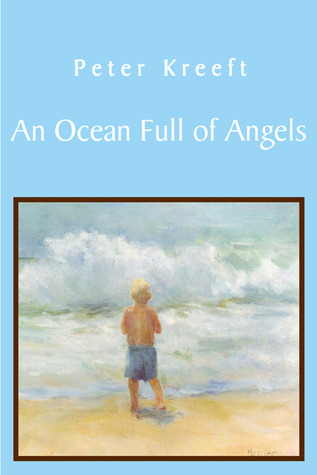- Biblia
- Leer la Biblia
- Versiones de la Biblia
- Verso del dia
- Planes de lectura
- Versos por tema
- Books of the Bible
- Imágenes De La Biblia
- Estudio
- Comentarios
- Concordancias
- Diccionarios bíblicos
- Enciclopedias bíblicas
- Sermones
- Bible Atlas & Maps
- BP Wiki
- Devocionales
- Devocionales de hoy
- Light of the World
- Todos los devocionales
- Inspirational Quotes
- Más
- Picture Quotes
- Videos
- Inspirador
- Estudio Bíblico
- Lo que dice la Biblia
- Bible Q&As
- Daily Bread
- Bible by Genre
- Bible Stories
- Random Bible Verse
- Comunidad
- Store
An Ocean Full of Angels: The Autobiograph of 'Isa Ben Adam
It began as a much more philosophical, talky, rational, in-control kind of book. The plot and the characters were originally there for the sake of the words, the points, the philosophy. Then the story and the character happily took over, and turned it into the opposite kind of book, in which the words were there for the sake of the characters and the events of the story, even though it remained long and wordy, and philosophical.
It began as a much more philosophical, talky, rational, in-control kind of book. The plot and the characters were originally there for the sake of the words, the points, the philosophy. Then the story and the character happily took over, and turned it into the opposite kind of book, in which the words were there for the sake of the characters and the events of the story, even though it remained long and wordy, and philosophical.Then I cannibalized the long and wordy original book by extracting the philosophical passages and making no less than five other little books out of them: 1. The Sea Within explores the puzzle of humanity’s mysterious love affair with the sea; 2. I Surf, Therefore I Am, is a mystical philosophy of surfing; 3. If Einstein Had Been a Surfer is about what kinds of thinking have to be included in a Theory of Everything; 4. A Refutation of Moral Relativism; and 5. Islamic Dialogs. Some of these utilize characters that are in Ocean. But these are all books of philosophy that cluttered up the story, so I had to evict them from its premises. These five other books all fascinate me, and I hope they will fascinate readers, but not in the same way as Ocean does.
Then I cannibalized the long and wordy original book by extracting the philosophical passages and making no less than five other little books out of them: 1. The Sea WithinThe Sea Within explores the puzzle of humanity’s mysterious love affair with the sea; 2. I Surf, Therefore I AmI Surf, Therefore I Am, is a mystical philosophy of surfing; 3. If Einstein Had Been a SurferIf Einstein Had Been a Surfer is about what kinds of thinking have to be included in a Theory of Everything; 4. A Refutation of Moral RelativismA Refutation of Moral Relativism; and 5. Islamic DialogsIslamic Dialogs. Some of these utilize characters that are in OceanOcean. But these are all books of philosophy that cluttered up the story, so I had to evict them from its premises. These five other books all fascinate me, and I hope they will fascinate readers, but not in the same way as Ocean does.Ocean is about connections: In the sense it is my “Theory of Everything”; it shows in a story the surprising, invisible, yet powerful connections among things. Philosophy, science, and theology can state, define, and argue for those connections, but story is more convincing because it presents them, shows them. That’s why story is more powerful than philosophy in convincing us. (How many Romans were converted by Christian theology? How many by the Gospel story?) No philosopher was able to convince me that “we are each responsible for all.” But Dostoevsky did: he showed it in The Brothers Karamazov.
OceanOcean is about connections: In the sense it is my “Theory of Everything”; it shows in a story the surprising, invisible, yet powerful connections among things. Philosophy, science, and theology can state, define, and argue for those connections, but story is more convincing because it presents them, shows them. That’s why story is more powerful than philosophy in convincing us. (How many Romans were converted by Christian theology? How many by the Gospel story?) No philosopher was able to convince me that “we are each responsible for all.” But Dostoevsky did: he showed it in The Brothers KaramazovThe Brothers Karamazov.BUY NOW
Published April 15th 2011 by St. Augustines Press (first published November 14th 2009)

Peter John Kreeft is a professor of philosophy at Boston College and The King's College, and author of numerous books as well as a popular writer on Christian theology, and specifically Roman Catholic apologetics. He also formulated together with Ronald K. Tacelli, SJ, "Twenty Arguments for the Existence of God".
Kreeft took his A.B. at Calvin College (1959), and an M.A. at Fordham University (1961). In the same university he completed his doctoral studies in 1965. He briefly did post graduate studies at Yale University. He joined the Philosophy faculty of the Department of Philosophy of Boston College in 1965. In 1994 he was a signer of the document Evangelicals and Catholics Together.
... Show more